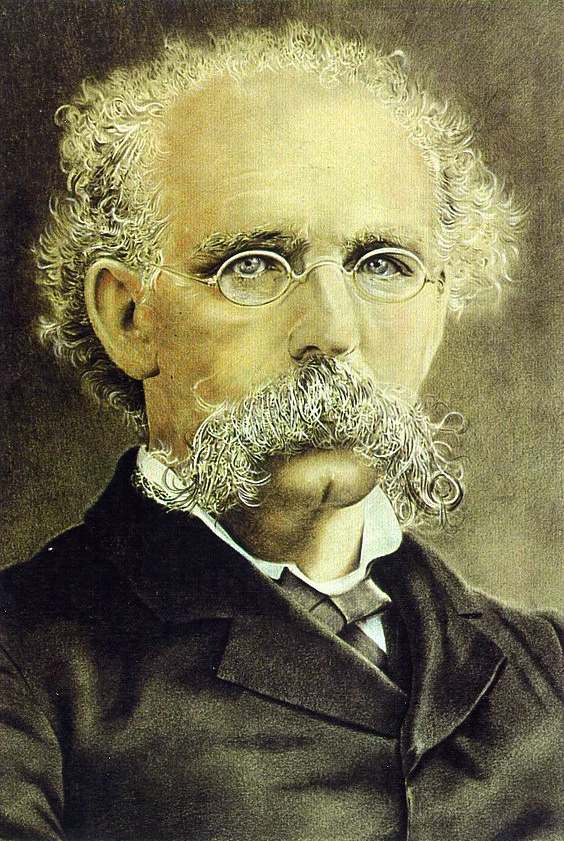"The Army of the Discontented," http://ebooks.library.cornell.edu/cgi/t/text/pageviewer-idx?c=nora;cc=nora;g=moagrp;xc=1;q1=The%20Army%20of%20the%20Discontented;rgn=full%20text;cite1=Powderly;cite1restrict=author;view=image;seq=0381;idno=nora0140-4;node=nora0140-4%3A8 North American Review, vol. 140, whole no. 341 (April 1885), p. 371.
Паудерли, Тиренс Винсент: Цитаты на английском языке
Контексте: You cannot judge all men by the one standard, any more than you can make shoes for all of them on the same last. No law that ever darkened white paper in the printing can lay down a rule of conduct for all men to follow alike.
"The Army of the Discontented," http://ebooks.library.cornell.edu/cgi/t/text/pageviewer-idx?c=nora;cc=nora;g=moagrp;xc=1;q1=The%20Army%20of%20the%20Discontented;rgn=full%20text;cite1=Powderly;cite1restrict=author;view=image;seq=0381;idno=nora0140-4;node=nora0140-4%3A8 North American Review, vol. 140, whole no. 341 (April 1885), p. 377.
“I learned that we are all good and bad instead of good or bad”
Контексте: Many men, aware of the treatment I received at the hands of Walter Dawson, have asked me why I did not avenge the wrongs he inflicted on me. I am not aware that he did inflict wrong on me … I did some good through being blacklisted. It made me more than determined to perfect an organization that would render blacklisting impossible; it made me mayor of Scranton where I learned that we are all good and bad instead of good or bad. It taught me how to put myself in the place of the vilest, filthiest, lowest-down tramp that comes to me for help. It taught me when men were brought before me for trial how to pierce the veil between cause and effect, between motive and act; it enabled me to come down from the bench as a magistrate, a representative of the law, and before the bar of my own heart, and conscience, place the prisoner then before me on the bench in my stead.
“If you owe a man a dollar, pay it; if you owe him a grudge, forget it, and always be kind.”
[Powderly, Terence, 'The Path I Trod: The Autobiography of Terence V. Powderly, 1940, Columbia University Press, 9781163178164, https://archive.org/stream/pathitrodautobio00powdrich, 34]
"The Army of the Discontented," http://ebooks.library.cornell.edu/cgi/t/text/pageviewer-idx?c=nora;cc=nora;g=moagrp;xc=1;q1=The%20Army%20of%20the%20Discontented;rgn=full%20text;cite1=Powderly;cite1restrict=author;view=image;seq=0381;idno=nora0140-4;node=nora0140-4%3A8 North American Review, vol. 140, whole no. 341 (April 1885), p. 371.
"The Organization of Labor," http://ebooks.library.cornell.edu/cgi/t/text/pageviewer-idx?c=nora;cc=nora;g=moagrp;xc=1;q1=The%20Organization%20of%20Labor;rgn=full%20text;cite1=Powderly;cite1restrict=author;view=image;seq=0122;idno=nora0135-2;node=nora0135-2%3A2 North American Review, vol. 135, no. 2, whole no. 309 (Aug. 1882), pp. 119.
[Powderly, Terence, 'The Path I Trod: The Autobiography of Terence V. Powderly, 1940, Columbia University Press, 9781163178164, https://archive.org/stream/pathitrodautobio00powdrich, 38]
[Powderly, Terence, 'The Path I Trod: The Autobiography of Terence V. Powderly, 1940, Columbia University Press, 9781163178164, https://archive.org/stream/pathitrodautobio00powdrich, 46]
[Powderly, Terence, 'The Path I Trod: The Autobiography of Terence V. Powderly, 1940, Columbia University Press, 9781163178164, https://archive.org/stream/pathitrodautobio00powdrich, 8]
"The Organization of Labor," http://ebooks.library.cornell.edu/cgi/t/text/pageviewer-idx?c=nora;cc=nora;g=moagrp;xc=1;q1=The%20Organization%20of%20Labor;rgn=full%20text;cite1=Powderly;cite1restrict=author;view=image;seq=0122;idno=nora0135-2;node=nora0135-2%3A2 North American Review, vol. 135, no. 2, whole no. 309 (Aug. 1882), pp. 118–9.
